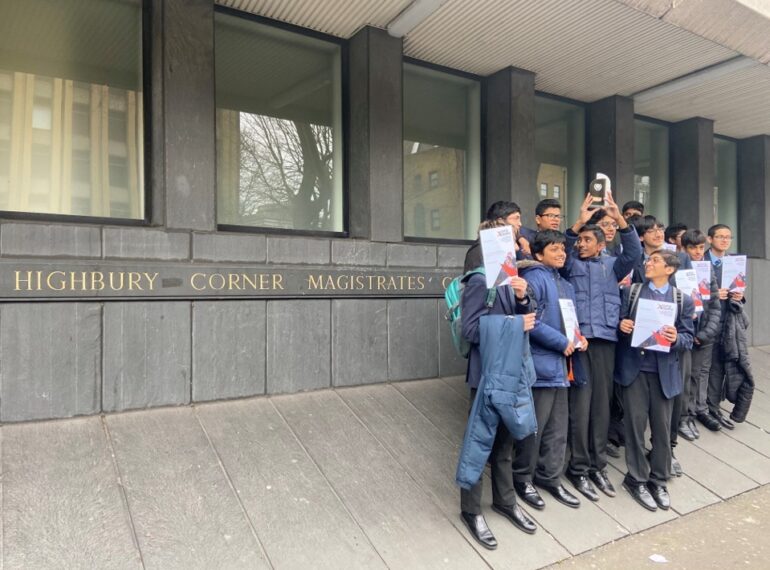
A QE team fought off a challenge from three other schools to win a legal competition, attracting praise for their performances both as defence and as prosecution.
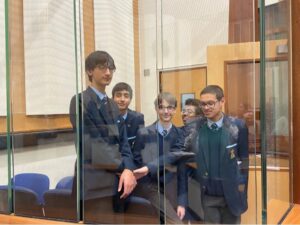 The 14-strong Year 9 team took part in two mock trials in the local heat of the Young Citizens Magistrates’ Court Mock Trial competition.
The 14-strong Year 9 team took part in two mock trials in the local heat of the Young Citizens Magistrates’ Court Mock Trial competition.
They won the heat, even though the verdict for the trial in which they were the defence was ‘guilty’.
Congratulating them, Enrichment tutor Kanak Shah said: “The boys’ preparation in the run-up to the heat and their performance on the day were both important factors in their success.”
Ms Shah accompanied the boys to the competition heat, along with fellow Enrichment tutor Eleanor Pickering.
The mock trials were of a defendant charged with possession of an offensive weapon – a lump hammer – in a public place. The case turned on whether the hammer was used offensively.
The boys auditioned to be part of the team some months ago. The successful candidates then prepared their case over the ensuing period, guided by Ms Shah. The team comprised not only prosecution and defence lawyers but also magistrates, witnesses, legal advisors and an usher.
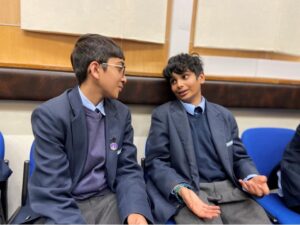 The competition judges were, in fact, real-life magistrates. “We had even had a visit from Magistrate Catherina Daly previously to help us prepare our case,” said Ms Shah. And, adding further to the competition’s verisimilitude, the heat was held at Highbury Corner Magistrates’ Court.
The competition judges were, in fact, real-life magistrates. “We had even had a visit from Magistrate Catherina Daly previously to help us prepare our case,” said Ms Shah. And, adding further to the competition’s verisimilitude, the heat was held at Highbury Corner Magistrates’ Court.
In the first trial, the lawyers for the defence were QE’s Keshav Aggarwal and Soham Sapra. The ‘guilty’ verdict here had had no bearing on the judges’ scores. QE won the round, with the judges highlighting their “strong team performance”.
Roles were reversed in round 2, where the QE pairing of Aahan Shah and Shashank Devaguptapu spoke as prosecutors. The verdict was again ‘guilty’, and QE once more won the round. In their notes, the judges stated: “It was a strong performance and showed good preparation, knowing facts. Confident in delivery.”
The rest of the QE team were:
- Magistrates – Hardik Ingale, Ishan Nakadi & Avan Khan
- Witnesses – Shubhay Chawla, Nimesh Nirojan, Jitin Sanapala & Eesa Bhaijee
- Legal advisors – Daniel Kollo & Orko Ghosh
- Usher – Nafis Meah.
The Young Citizens Magistrates’ Court Mock Trial competition is for 12–14 year-olds from state schools in England, Wales and Northern Ireland.

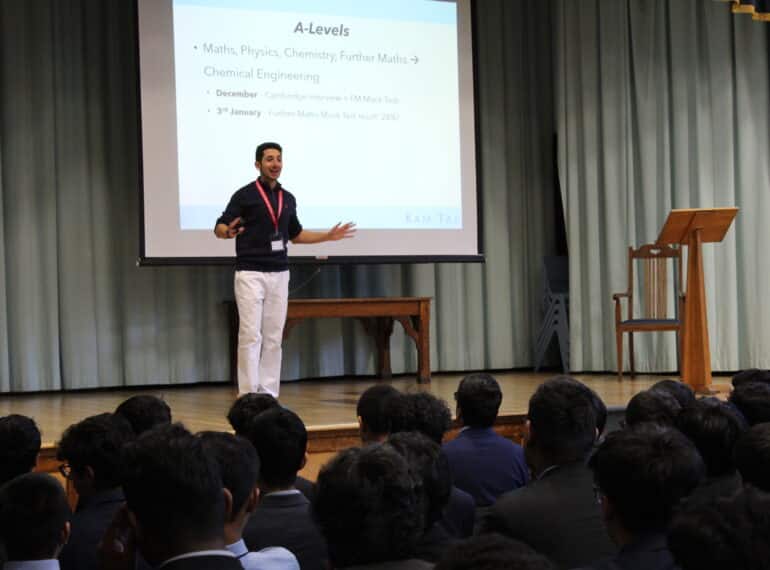
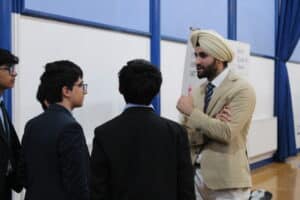 The event featured sessions focusing on specific professions, seminars offering guidance on a range of career-related topics, and an afternoon careers fair where the boys could gain one-to-one advice from alumni and other external guests.
The event featured sessions focusing on specific professions, seminars offering guidance on a range of career-related topics, and an afternoon careers fair where the boys could gain one-to-one advice from alumni and other external guests.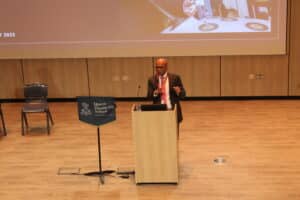 “We wanted to give students the opportunity to hear from and talk to people working in a wide range of industries and professions, whether to open up new possibilities for them or to provide insight into areas they were already considering. This kind of support is invaluable as they begin to make decisions about their futures.”
“We wanted to give students the opportunity to hear from and talk to people working in a wide range of industries and professions, whether to open up new possibilities for them or to provide insight into areas they were already considering. This kind of support is invaluable as they begin to make decisions about their futures.”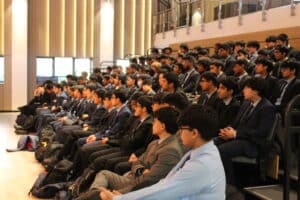 After his talk, and a session on Appropriate Alternatives to University, all Year 11 had a half-hour talk on careers in medicine. They could choose also between sessions looking at careers in law, finance and STEM (Science, Technology, Engineering, Mathematics).
After his talk, and a session on Appropriate Alternatives to University, all Year 11 had a half-hour talk on careers in medicine. They could choose also between sessions looking at careers in law, finance and STEM (Science, Technology, Engineering, Mathematics).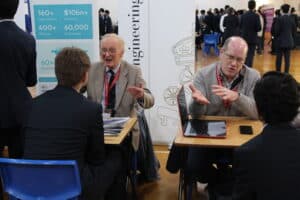 Mr Kane, who leads on careers provision at QE, said: “There are many different pathways to success, and the day made clear to the boys that career progression may take unexpected turns along the way. We raised awareness about alternative paths to university, including apprenticeships, which is a route a small number of leavers have successfully followed in recent years.
Mr Kane, who leads on careers provision at QE, said: “There are many different pathways to success, and the day made clear to the boys that career progression may take unexpected turns along the way. We raised awareness about alternative paths to university, including apprenticeships, which is a route a small number of leavers have successfully followed in recent years.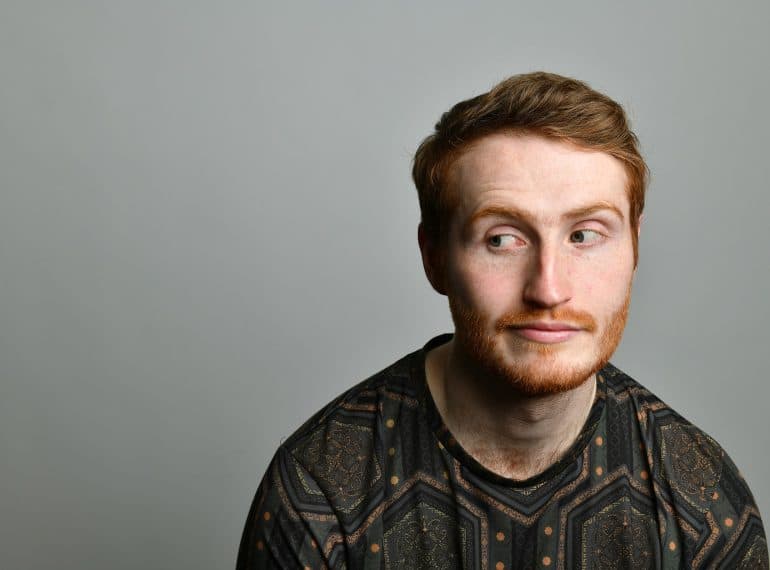
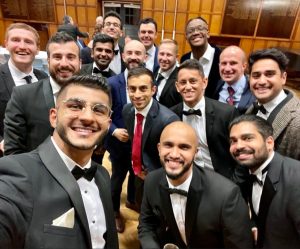 Alister, who was among the guests at this term’s OE Association Dinner, therefore feels a special impetus to encourage today’s pupils if they hold similar interests.
Alister, who was among the guests at this term’s OE Association Dinner, therefore feels a special impetus to encourage today’s pupils if they hold similar interests.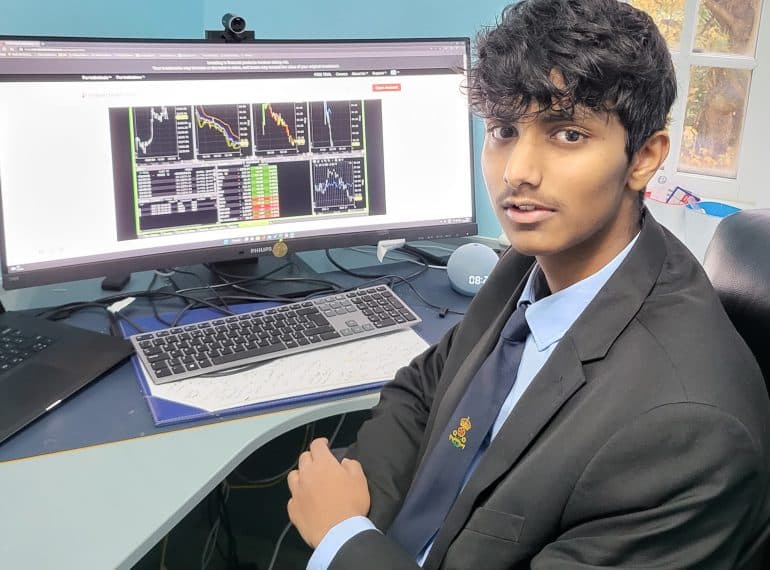
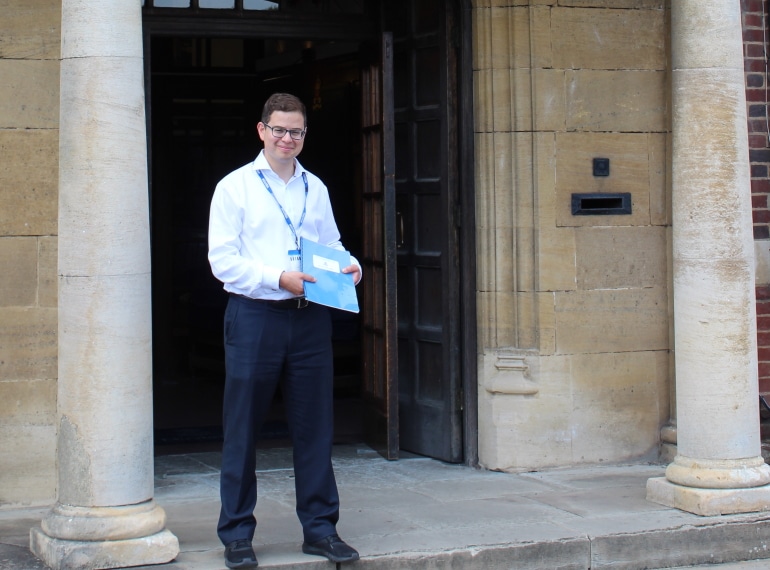
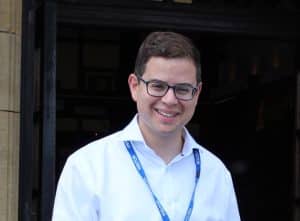 Max (OE 1991–1998), a corporate communications expert, visited the School to speak to a select group of sixth-formers.
Max (OE 1991–1998), a corporate communications expert, visited the School to speak to a select group of sixth-formers.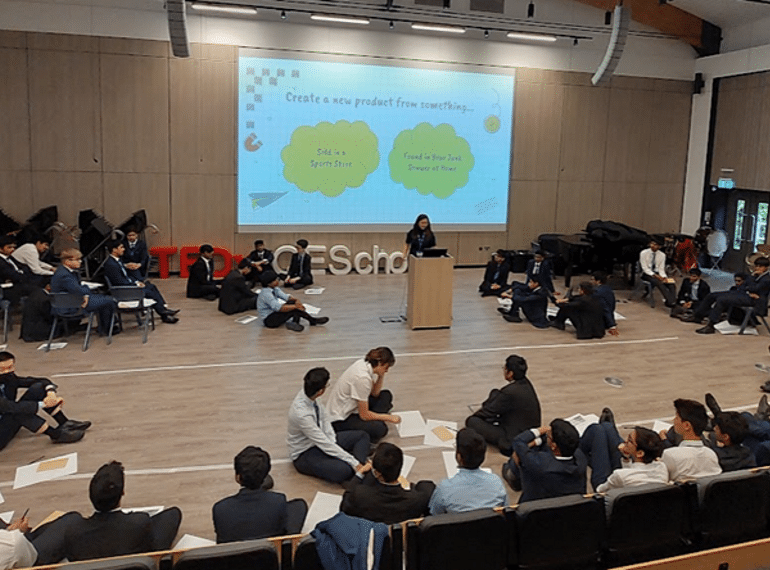
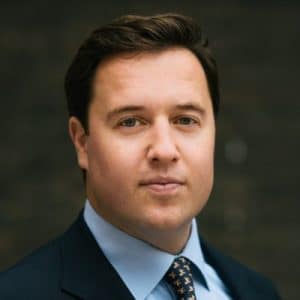 LSE Generate’s other partners include the Foreign, Commonwealth and Development Office and Makyth Ventures, the Winchester College-based entrepreneurship group which itself ran a workshop for QE in the 2022 Spring Term.
LSE Generate’s other partners include the Foreign, Commonwealth and Development Office and Makyth Ventures, the Winchester College-based entrepreneurship group which itself ran a workshop for QE in the 2022 Spring Term.